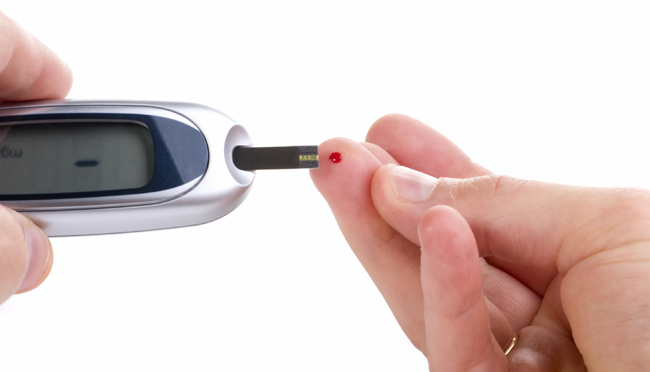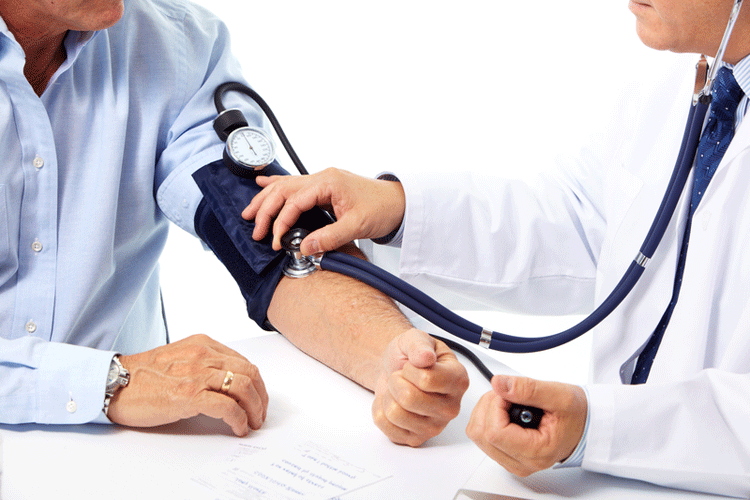Sleep apnea is one of the most common sleep disorders prevalent among people of varying gender, and age groups. Loud snoring, daytime sleepiness, nocturia, tiredness, difficulty in breathing at night are some of its symptoms. And an untreated apnea patient is likely to develop conditions like high blood pressure, cardiac attacks, diabetes and obesity.
Here we take a look at some of the common problems that a sleep apnea patient is likely to have or develop:
Hypertension (or High Blood Pressure)
Hypertension is one of the most prevalent lifestyle diseases in India, with estimates suggesting that by 2020, every third person in India will be living with hypertension. This number is predicted to rise to 214 million by 2025.
Interestingly, hypertension is found to be closely related with sleep apnea. About 50% of patients with hypertension also suffer from OSA.
Here’s why:
In OSA, the airway gets blocked during sleep for an apnea patient, and the amount of air going inside his body decreases, and then completely stops at a point. To compensate for this, the heart starts to beat faster, trying to pump blood faster through the body and circulate the limited oxygen. This causes higher blood pressure, and as a result, hypertension.
Since these apnea episodes lead to high pressure, and put severe stress on the heart, it is quite unsurprising that OSA is considered a secondary contributor to hypertension in a lot of cases.
Another major for hypertension and sleep apnea occurring simultaneously is because they both stem from obesity. High blood pressure and high levels of cholesterol in the blood are common in in obese individuals, and major risk factors for hypertension. Obesity is also one of the major sleep apnea causes, as the deposition of fat around the neck narrows the windpipe. This causes airflow blockage during sleep and hence sleep apnea.
However, because of this close correlation between hypertension and sleep apnea, there are also signs that an effective treatment for sleep apnea will lead to curing hypertension as well.
Several research studies show that the use of Continuous Positive Airway Pressure (CPAP) therapy, used to treat OSA, does lead to a decrease in blood pressure in most instances. It is most effective for patients with resistant hypertension, and can be a potential treatment option. These studies also found lower instances of new hypertension in patients who have complied with CPAP therapy.
There were also some similar studies conducted with other sample sets, that did not reveal a very direct correlation between CPAP therapy and reduced blood pressure. But there is no denying that despite the currently conflicting clinical evidence around the effectiveness of CPAP therapy to reduce blood pressure, patients have definitely found relief with CPAP.
CPAP ensures the smooth flow of oxygen throughout the body while asleep, and helps reduce apnea episodes. That means less strain on the heart, and therefore reduced risk of CVD complications in hypertensive patients.
Type 2 Diabetes
Type 2 diabetes is a chronic disease that messes up the way your system absorbs sugar or glucose. So a type 2 diabetes patient’s body either resists the effects of insulin or doesn’t produce adequate insulin to maintain a balanced level of glucose in the body.

Studies indicate that sleep apnea and diabetes are related, with the prevalence of diabetes being 15%-30% higher in OSA patients than people without OSA. And this is more common among males aged 30-69 years and females aged 40-65 years. Such patients diagnosed with OSA have a greater risk of developing type 2 diabetes or worsening the condition if they already have it.
Here’s how:
Sleep apnea, if present, tends to incite a state of severe insulin resistance in your body. As a result, it may lead to compensatory hyperinsulinemia, and increase the requirement for higher doses of exogenous insulin. Prevalence of this condition can make it more difficult for you to manage your diabetes, and for some, even lead to the development of type-2 diabetes.
There’s an another link too. In OSA, when the airway is completely closed, the level of carbon dioxide in the blood increases. This leads to:
- Insulin resistance, so that the body doesn’t use insulin effectively. As a result, it causes more sugar in the blood stream leading to high blood sugars
- Chronic elevated blood pressure
- Increased incidence of heart problems or cardiovascular disease
- Early morning headaches
Sleepiness can also cause people to forget to take their medication and may lead to further diabetes complications.
A third correlation is with obesity. According to research studies, about 48% of individuals diagnosed with type 2 diabetes have displayed symptoms of sleep apnea, and 86% of obese people with type 2 diabetes are diagnosed with sleep apnea.
So we can say that, people who have poor sleep habits are at greater risk for becoming overweight or obese and developing type 2 diabetes. Obesity increases the risk of sleep apnea, type 2 diabetes, heart disease, hypertension, arthritis, and stroke.
One good thing to note here is that the treatment of OSA is found to show positive results on diabetes too. The CPAP treatment for OSA can improve glycemic control and insulin resistance and thus improve diabetic conditions of patients.
Apart from these two major comorbidities related to sleep apnea, there are also signs of relation between sleep apnea and the following complications:
Heart Failure
Heart failure is a growing problem worldwide that rises with age, and is estimated to affect 6-10% of people aged over 65. A significant number of heart failure patients are also found to experience sleep disordered breathing.
Around 73% of patients with stable heart failure experience sleep-disordered breathing, with Cheyne-Stokes respiration (CSR), obstructive sleep apnea (OSA) or central sleep apnea (CSA).
Strokes
Stroke is caused by a blocked blood vessel or bleeding in the brain. The signs of a stroke include a sudden severe headache, weakness, numbness, vision problems, confusion, trouble walking or talking, dizziness and slurred speech.
Studies show a correlation between sleep apnea patients and stroke. Around 72% of patients who have experienced a stroke are also found to have sleep-disordered breathing, which can sometimes be left undiagnosed.
Obstructive sleep apnea is an independent risk factor for stroke and it has also been suggested that in patients with moderate to severe OSA and ischaemic stroke, CPAP therapy can lower their risk of mortality.
As discussed above, sleep apnea is a condition that can cause multiple health complications in your life. But its proper treatment can help prevent those serious health problems, whether it is diabetes, weight gain, high blood pressure or other cardiovascular diseases.
Hence, it is best to conduct a undertake a sleep apnea diagnosis to know if you have a sleep disorder. It will also decrease your chances of worsening or developing other comorbidities.






